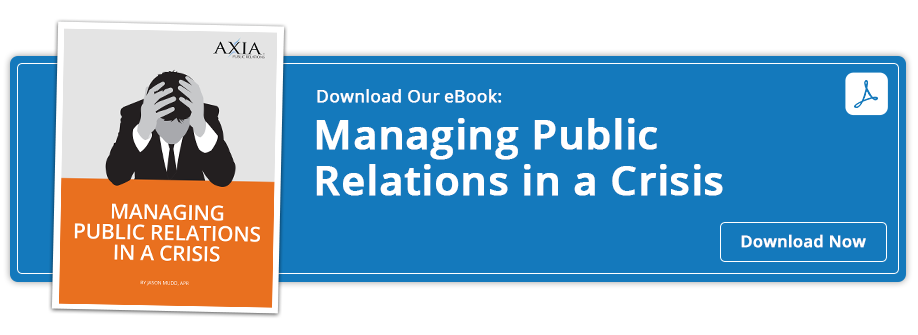 How Turing Pharmaceuticals’ Martin Shkreli and others can climb out of a PR nightmare
How Turing Pharmaceuticals’ Martin Shkreli and others can climb out of a PR nightmare
Imagine this: A crisis is brewing over your company’s perceived lack of compassion for your customers. To make things worse, a top executive is quoted in major media outlets saying that the company will do little (or nothing) to change.
You don’t need to imagine it; you can read all about it in the news coverage of Turing Pharmaceuticals’ CEO, Martin Shkreli, who decided to drastically increase the cost of a life-saving drug from $18 to $750 a pill. However, there are ways for this company – and others in a similar situation – to recover from such a fiasco with help from PR.
How to get out of a crisisAs with most things, getting out of a crisis is much harder than getting into one. If you don’t take the right actions, your company can suffer irreparable damage and might not survive it.
For example, although Turing is currently the sole provider of the drug, a competitor has offered to produce an alternative with the same properties and charge just $1. If successful, there will be no need for the absurdly overpriced Turing product.
In the event that your CEO puts his well-shod foot in his mouth, here are some things you can do before it’s too late:
Recognize that you may not know everything and listen to professional advice. After all, you got yourself into a full-blown crisis without realizing how bad things were until you were hip-deep. Therefore, understand that doing things your way may not be the best choice. PR experts have the ability to step back, see the big picture and pull you out. Let them.
Keep a level head. Going into panic mode and making snap decisions does not benefit anyone. You should consult your crisis management plan (Of course you have one, right?), decide which potential scenario most closely matches your current predicament and follow it. This will help to keep you on the right path and not get sidetracked into playing the blame game.
Quickly communicate with everyone affected. Your loyal customers, employees, board members, suppliers and other key stakeholders will be concerned that the crisis will put you out of business or have an effect on their bottom line. Develop key messages and talking points and use them to maintain a sense of calm throughout your organization and assure everyone that you are taking the appropriate actions to handle the crisis. This is vital because you may need their help in spreading the word on social media and other communication vehicles.
Put your best spokesperson forward. Creating messages and responses is just the beginning; you also have to deliver them to all key audiences on the most suitable channels. One of the most crucial is the media. Having the right spokesperson at the microphone can put your company in the best possible light and ensure that your audiences receive your messages exactly how you want them to.
Hire a PR firm. In the event of a crisis, you need to manage the fallout while simultaneously running your business. Pulling key people away from their normal responsibilities to deal with a crisis can make it harder to get things back to normal once the crisis is over.
At Axia Public Relations, we will help you employ the best strategies to get your company through a crisis with minimal damage to your brand. With our assistance, your company can actually emerge stronger than you were before the crisis began. Contact us today or download our e-book Managing Public Relations in a Crisis for more information.

 Lisa Goldsberry is a writer for Axia Public Relations with more than 15 years of public relations experience. She specializes in business, higher education and technology PR. Connect with Axia Public Relations on Twitter
Lisa Goldsberry is a writer for Axia Public Relations with more than 15 years of public relations experience. She specializes in business, higher education and technology PR. Connect with Axia Public Relations on Twitter
Topics: public relations, crisis communications, shared media


Comment on This Article